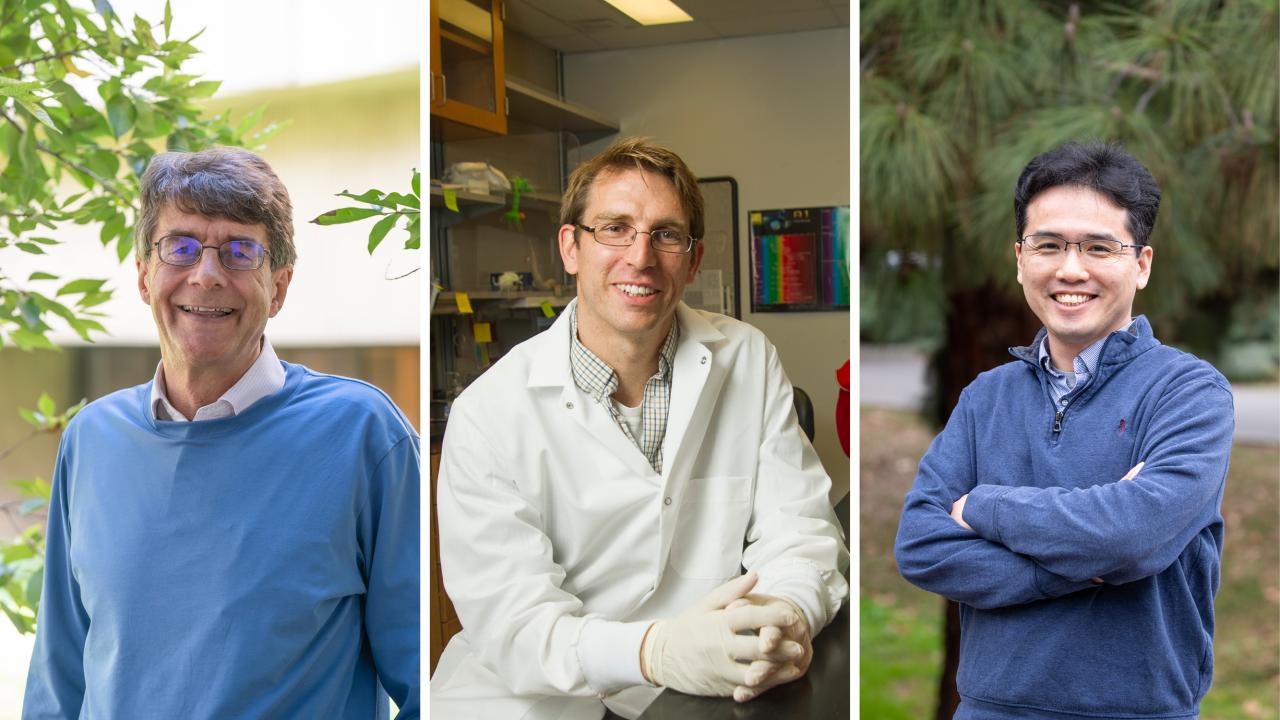
Inaugural “Under the Microscope” Spotlights UC Davis Cancer Researchers
Event to cover advancements in our understanding of breast, lung, and pancreatic cancers
Researchers in the College of Biological Sciences (CBS) are driving breakthroughs in one of the thorniest problems in science: understanding and combating cancer.
On April 29, the first webinar in a new series called “Under the Microscope” will offer the public an inside look at their innovative research, which is changing our understanding of breast, lung, and pancreatic cancer.
More than 40 percent of people will be diagnosed with cancer in their lifetimes. A better understanding of the disease on a molecular and cellular level is relevant to millions of families. As such, cancer research is a natural fit for the first webinar in the series, which will bring together three CBS researchers whose work could lead to better outcomes for future patients and families.
The three featured speakers—all members of the UC Davis Comprehensive Cancer Center and its Integrated Cancer Biology Program—each study different aspects of the disease.
Wolf-Dietrich Heyer, distinguished professor and chair of the Department of Microbiology and Molecular Genetics, will discuss his decades-long work on the large, highly variable BRCA-2 gene, which predisposes people to breast and other cancers; Heyer’s work aims to better understand which of its tens of thousands of variants may be pathogenic.
John Albeck, a professor of molecular and cellular biology, will present his research on lung cancer cells, which combines computational models with live cell data to decipher the signaling “code” that controls cell behavior.
Chang-il Hwang, an assistant professor of microbiology and molecular genetics, will share how he has developed a cell culture system to grow pancreatic organoids in the lab—a development that could alter future prognoses for one of the deadliest types of cancer.
Each researcher will share a brief, big-picture overview of their work before transitioning to conversation and audience questions. “Our researchers will highlight the key takeaways of their discoveries and then invite dialogue,” said Jennifer Scott, CBS’s managing executive director of development.
Heyer emphasized that while each researcher’s work is distinct, the colleagues share many interests. “Certainly, what we each do is very connected, because BRCA-2 also predisposes people to pancreatic cancer,” he said. “My lab focuses on the molecular mechanism, which is genome stability. Chang-il focuses on a particular tumor type, which is pancreatic cancer, on the cell biological side. And John Albeck’s work is relevant for all cancer cells—he looks at how they regulate their growth.”
Such research may reshape the future of cancer treatment, from advancing early detection to finding effective new therapies. Heyer emphasizes that the presenters’ distinct, yet complementary approaches can all shed new light on this multifaceted disease.
“Cancer is essentially a genetic disease caused by mutations that enable cells to grow and divide indefinitely, and the future of cancer treatment is probably to make it into a manageable disease with treatments that maintain quality of life, like how we now manage HIV infections,” he said. “Multiple approaches to solving a common problem often yield better results.”
More broadly, Heyer notes, the webinar series can help bring much-needed scientific understanding to the public. “It will really showcase the value of basic science,” he said, adding that public forums like Under the Microscope are “a way we can connect with people effectively.”
“Basic science is the foundation for eventual application, like new treatments, that help improve our collective health,” said Mark Winey, dean of the College of Biological Sciences. “I am very pleased to see the college launching this new forum to exchange ideas and innovations, and to invite members of the public to engage directly with our researchers.”
While the first Under the Microscope event spotlights cancer research, the series will showcase the groundbreaking biology research taking place at UC Davis.
“This program allows us to share the depth and scope of the interdisciplinary research being done at the college with our alumni, donors, and friends,” Scott said. “Biology is woven in every aspect of UC Davis, and the fundamental research happening here is key to addressing some of the world’s greatest challenges.”
Such challenges in the areas of energy, the environment, food, and health will be the focus of this and future webinars, which are slated to take place twice a year.
The initial Under the Microscope webinar takes place April 29, 2025, at 1:30 p.m.
Media Resources
- Kate Washington, Ph.D., is a freelance writer based in Sacramento and the author of Already Toast: Caregiving and Burnout in America. Her work has appeared in the New York Times, TIME and Sunset, among other publications.
